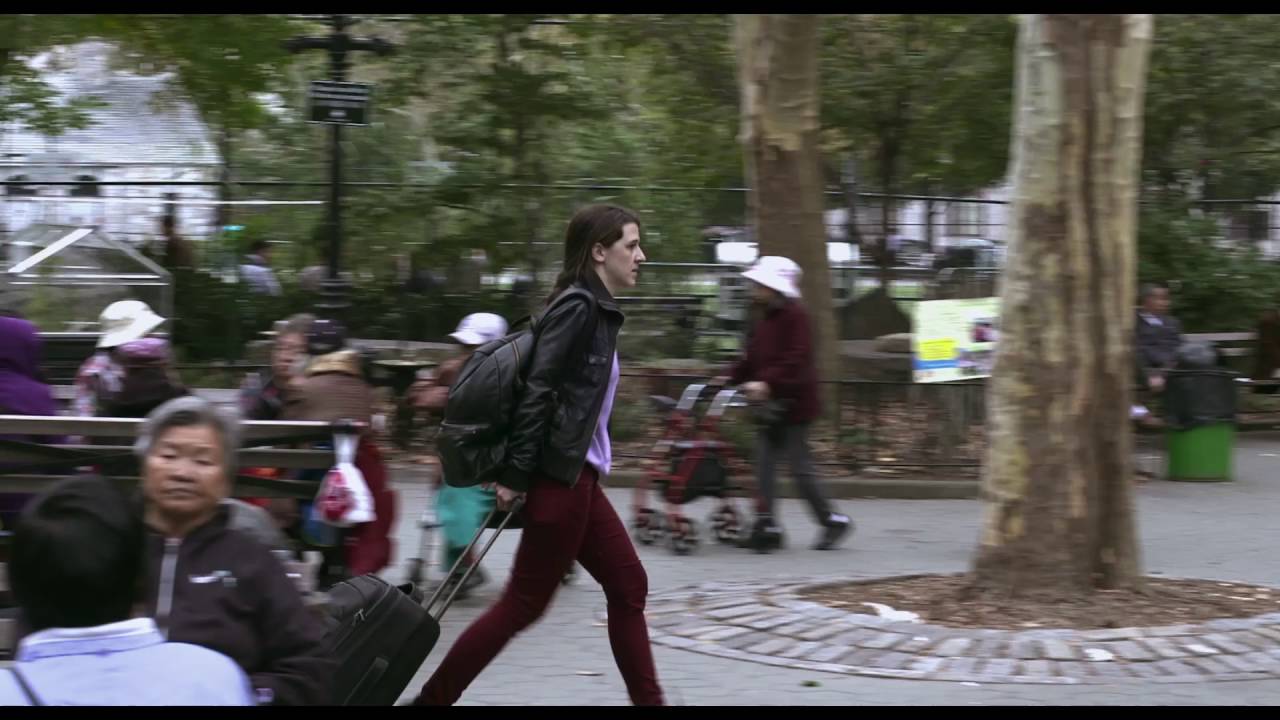The films of Matias Piñeiro are, we are told, above all other things “clever”. Arthouse confections structured, however loosely, as riffs on Shakespeare’s plays, the Argentinian-born director’s works straddle a line between creative reimaginings and film school twee. Hermia and Helena is my first Piñeiro (grain of salt and all that), but if it’s any indication, I’m coming down decidedly on the side of the latter. This is a film of ideas that amount to far less than the film seems to think they do.
As the title suggests, we are in A Midsummer Night’s Dream territory here: the air-light narrative emphasizes doublings, four interconnected plots, and other ethereal call-backs. We open with Carmen (María Villar) vacating her NYC apartment after finishing up an artistic residency there and preparing to return to Buenos Aires. Camila (Agustina Muñoz), the woman with whom we spend the most time, arrives from Argentina to take her place in the program, and quickly strike up a relationship with an American named Lukas (Alex Ross Perry favorite Keith Poulson), who also had something going with Carmen it seems. (Lukas, with his indie flick hipster sensibility, seems likely to have something going with anyone in this program.)

The doublings and meta-texts pile on top of each other. Camila’s project in Hermia and Helena is to translate (you guessed it!) A Midsummer Night’s Dream into Spanish for an Argentinian performance back home: her walls are covered with transliterations, and Piñeiro misses no opportunity to remind us that this is what it’s all about. Unfortunately, he frequently has to — the connections between stage play and romantic ex-pat Round Robin are so tenuous you have to squint to see them in the first place.
There is more. A left-behind Argentinian boyfriend is slighted by Camila’s bubbly shrug of a departure, and the two can connect only through the internet. A former lover in New York — a filmmaker whose Du Maurier-inspired short Piñeiro compels us to watch in full, like a guest arriving with a slide-show from his trip to undergraduate studies — is encountered and just as quickly jettisoned. Carmen receives postcards from a mysterious friend of Camila’s making her way across the Western U.S., which she turns into an art project as she awaits the arrival of someone she doesn’t know. Dislocation is the theme of the day here; if you missed it, Piñeiro tells the entirety of Hermia and Helena backwards, at random intervals. “Clever”.
Still, there are deft touches and some pleasant light comedy amid all the writerly hijinks. Superimpositions, sometimes three or four deep, convey that dislocation better in a few short transition moments than the narrative scenes they divide, and they’re beautiful to boot. One longish scene, set in upstate New York, in which Camila meets the father she never knew hints at a grounded film with recognizable humans, rather than the collection of fantasies, dodges, and non-places that constitute the bulk of Hermia and Helena‘s front-loaded aesthetic.

But these moments can’t redeem the interminable frothiness of the rest. Clocking in at less than an hour and half, Hermia and Helena somehow felt simultaneously far longer and far slighter than Cristi Puiu’s three-hour Sieranevada. Both Piñeiro (who splits his time between Argentina and New York) and the Romanian Puiu (who wrote his script after the death of his own father) clearly draw on personal experience in constructing their latest features, but to much different effect. Sieranevada feels like a comic grappling with ritual. Hermia and Helena feels like a clothesline on which to pin half-finished notes.
And irony of ironies: an introductory title card dedicates Hermia and Helena to Setsuko Hara, the iconic star of some of Ozu’s best films. Is Piñeiro subtly poking himself, contrasting the frequent silence and stasis of Tokyo Story or Late Spring with the non-stop, incongruously ragtime-scored motion of his film?
He doesn’t seem like a particularly self-deprecating director, so I’m guessing no. What that dedication means is up for grabs. But what’s clear is that Hermia and Helena is too long, too unmoored, and too faulty in its conception to work, even on its own terms.

